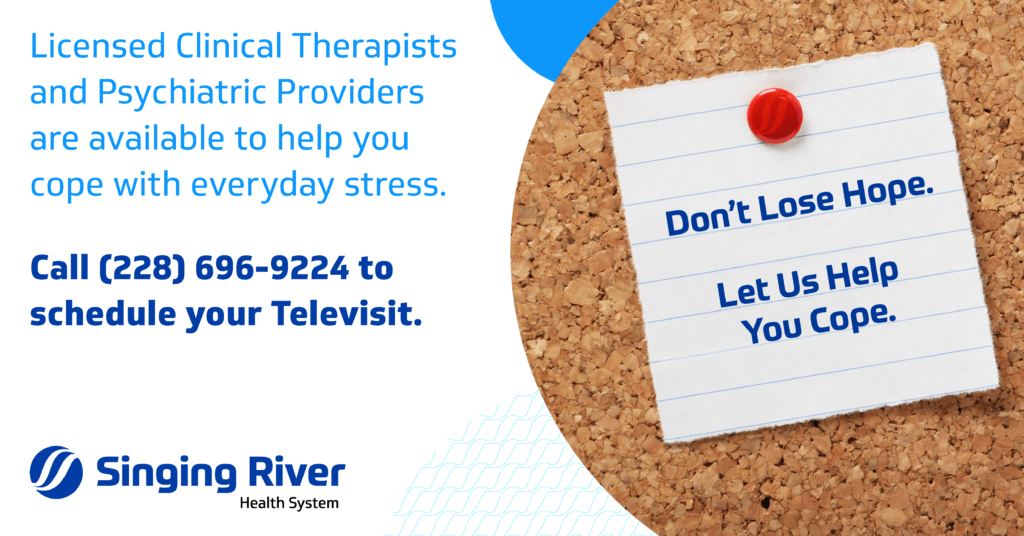Stay Calm: Manage Stress and Anxiety
Stay Calm! Here are some tips for identifying mental health issues and resources to help you manage the stress and anxiety you may be experiencing related to Coronavirus (COVID-19).

Stress can take its toll on our physical and mental health. During these days of social distancing, working from home, constant news and alerts, we all are feeling stressed and filled with anxiety.
Signs of Stress
Stress can manifest itself in a multitude of different physical or emotional changes in a person.
Physical signs of stress include:
- Headaches, migraines, or feeling lightheaded
- Stomachaches, ulcers, back and muscle pain, grinding teeth
- Fatigue, trouble sleeping, difficulty concentrating
- Poor appetite, weight gain or loss
- Rashes, itching, and hives
- Increase in drinking, smoking or drug use (making it harder for the body to fight viruses and bacteria)
Emotional signs of stress include:
- Forgetfulness
- Mood swings
- Excessive nervousness, anxiety, and worry
- Increased anger and hostility
- Depression
- Difficulty communicating, feeling overwhelmed
- Withdrawal from social interaction
Ways to Manage or Eliminate Stress
- Plan your day. Pick something to do, such as work in the yard, read a book, complete a task or goal. Start a hobby or learn a trade you always wanted to such as cooking, writing, painting, learn to play an instrument, puzzles, etc.
- Eat well and stay active. A healthy, well-balanced diet and exercise can keep your body fit and able to fight disease. Exercise also is an excellent way to lift up your mood.
- Get some sunlight. Sit on your porch instead of the couch. Taking a walk or bike ride while maintaining social distancing accomplishes both.
- Limit media exposure. Put your phone down and avoid binge-watching television shows. Turn off the TV/computer.
- Maintain your sleep pattern. Keep a regular schedule for going to sleep and waking up each day.
- Stay in the present. You can calm both your mind and your body by keeping your mind in the present. The present is hardly ever as stressful as an imagined future or a past full of regrets.
- Meditate to stay in the present, center your attention on your breathing, a sound or visual pattern, a repetitive movement, or meditation.
- Review your coping responses. Think about the successes you’ve had while experiencing other stressful life events. Recall some of the things you did to cope.
- Acts of kindness. Find a way to focus on helping others. Offer to babysit a healthcare worker’s children, call two people each day to see how they are doing and catch up.
Mental Health Resources:
- Singing River Behavioral Health Services: 228-696-9224
- United Way Gulf Coast Family Counseling Agency: 228-875-6113
- Disaster Distress Line: 1-800-985-5990
- Singing River EmployeeConnect Program: 1-888-628-4824
- COVID-19 in Pediatric Population with Dr. Tyler Sexton
Coping with stress will make you, the people you care about, and your community stronger.